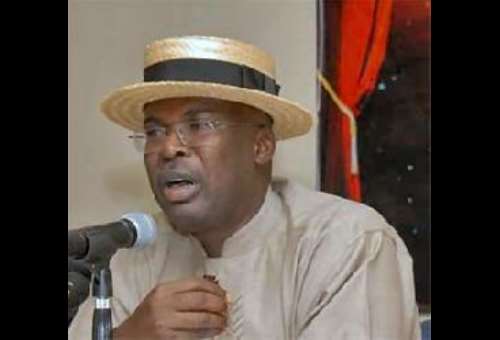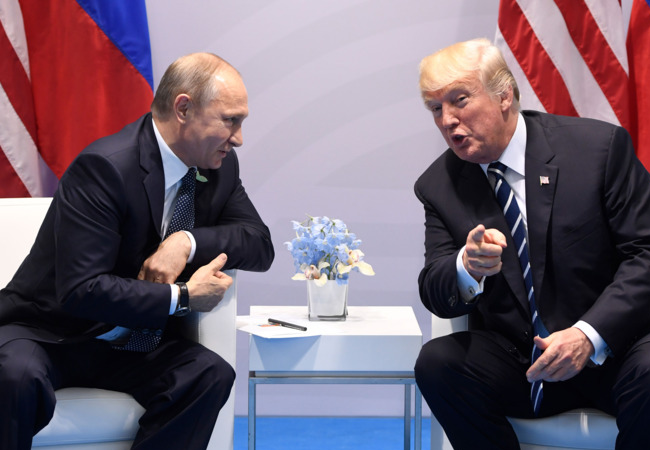Headline
We Don’t Know Exact Daily Fuel Consumption – FG

…Petrol still smuggled out of this country, marketers say
As a country, we still cannot tell the exact volume of Premium Motor Spirit, popularly called petrol, which we consume on a daily basis, the Federal Government has said.
It stated this just as oil marketers explained that Nigeria’s inability to give a definite figure on the amount of petrol it consumes daily was due to the continued smuggling of PMS out of the country.
The Minister of State for Petroleum Resources, Chief Timipre Sylva, stated that the Nigerian National Petroleum Company Limited had also agreed that Nigeria could not tell the exact amount of petrol consumed across the country daily.
He disclosed this in an interview with his media team, led by his Senior Adviser, Media and Communications, Horatius Egua, which was made available to our correspondent in Abuja on Friday.
READ ALSO: How Police Foiled Attempt By Hoodlums To Hijack APC National Convention In Abuja
Asked to react to the N3tn fuel subsidy proposal by NNPC, amid concerns about the country’s PMS consumption figure, Sylva replied, “I would have preferred that this question be directed to the NNPC.
“I have made my views known about this issue in the past. NNPC has agreed with me that they are not certain about the exact consumption figure.”
He said the truth was that if the country’s petroleum products were smuggled outside the country, nobody could say what volume was involved today, tomorrow or next week, adding that NNPC could not say they know these figures.
“It’s more or less fueling a criminal economy. The NNPC imports the products, and nobody knows the exact destination of the products at the end of the day,” Sylva stated.
He added, “The imported products come to Nigeria, and from there filters out of our borders to neighbouring countries.
“So, as a country, we cannot tell the exact volume of petroleum products that we consume on a daily basis. All we have been doing is to assume the level of consumption over a period and work with that.”
He, however, expressed belief that the NNPC probably had a better answer to this, stressing that “personally, I dont.
“I have said this publicly before that I don’t know the figure. When I assumed office, initially I was told that our daily consumption was 66 million litres.
“Then, when fuel prices increased from N145 to N162, the consumption figure temporarily fell to about 40 something million litres per day, because the arbitrage opportunity reduced,” Sylva stated.
He added, “Then the value of the naira dropped again, and the number went up again to over 60 million litres. I am told the figure sometimes rise to as high as 90 or over 100 million litres. I don’t know how that happens.
“At this rate, I have said if anyone is looking at a criminal enterprise, look no further than the fuel subsidy.”
This, the minister said, was why he had continued to advocate the removal of fuel subsidy from the country’s PMS pricing template and deregulate.
He said the President, Major General Muhammadu Buhari (retd.), had done everything to resolve the issue, including the closure of the country’s borders with neighbouring countries, yet the criminality was not stopped.
READ ALSO: Petrol Import Jumps By 88% In 12 Months, Hits N3.97tn –Report
“The truth is that what the President could do was to close the ‘formal’ borders. What about the illegal routes?,” Sylva asked.
On what could be done, the minister said if the subsidy component was taken out through deregulation, smuggling of PMS to neighbouring nations would cease.
“Of course, we need the market from there. But now we are punishing ourselves because every litre we import at our expense will always find its way outside the country,” he stated.
He added, “Now, the government is trying to subsidise our citizens so that our people will at least get the benefit of the subsidy on petroleum products.
“But, now because of how our borders are, it is very difficult. Now, we are inadvertently subsidising the whole of Africa. This is the thing we cannot handle.”
Also speaking on the matter, the Executive Secretary of the Major Oil Marketers of Nigeria, Clement Isong, told our correspondent that the cheap fuel in the country had remained an incentive to smugglers.
He said, “The higher the price (of petrol) is outside the country and you see prices where they are in the country, the natural response is that normal people such as farmers, okada drivers, transporters, etc, will leave their jobs to go and sell petrol.
“This is because of the mark-up. This is why, particularly in Abuja, you see many people carrying jerrycans of fuel selling them on major roads. This also plays along our borders.
“For as long as the international price continues to rise and we keep our own prices where they are, what will happen is that those countries will suck the products out of Nigeria and you simply will not find the product in Nigeria.”
Isong added, “If you go to those countries, the marketers there will tell you that they are unable to sell because of the product coming from Nigeria is killing their market. This happens in all the countries around Nigeria.”
He stated that the normal supply chain volumes would continue to go down because the products were leaving Nigeria, describing those smuggling out PMS as ordinary everyday citizens.
“This is because they simply make more money buying from here at N162-N165/litre and going across the border to sell at N500/litre. It is more money for them and it is simply the law of economics, called arbitrage, which is a market distortion,” Isong stated.
He added, “And it is what the subsidy on petrol does on Nigeria, a market distortion. Something is worth N500 and you’re selling at N200. Now where you’re supposed to find it at N200 you will not see it because it has moved to where the actual value of N500 is.
“This can also contribute to the scarcity we see in parts of Nigeria. That is why NNPC if it is meant to normally supply 60 million litres per day, for it to keep queues out of filling stations, it will have to increase its supply to 90 to 100 million litres. That’s the problem.”
READ ALSO: Fuel Souvenir: Lagos Socialite Jailed Two Years
The MOMAN official said Nigeria must wean itself of fuel subsidy, “because we are killing both our present and future.
“We simply cannot afford it. We are borrowing money for it.”
PUNCH.
Headline
Russia Deploys Navy To Guard Venezuelan Oil Tanker Chased By US In Atlantic

Russia has deployed naval assets to escort a sanctioned oil tanker across the Atlantic following reported moves by the United States to seize the vessel.
US forces were said to be preparing to board the ship, which has a history of transporting Venezuelan crude oil and was last believed to be sailing between Scotland and Iceland.
CBS News reported that Russia stepped in to protect the tanker, raising the prospect of a direct confrontation between the two powers at sea.
READ ALSO:Russia Calls up 135,000 Military Personnel
By sending naval ships into the North Atlantic, Russian President Vladimir Putin is signalling to United States President Donald Trump that any US action would carry consequences, coming after the US president threatened that he might use the military to seize Greenland.
The tanker, currently empty, previously operated under the name Bella 1. Last month, the US Coast Guard attempted to board it in the Caribbean with a warrant over alleged breaches of US sanctions and claims that it had shipped Iranian oil.
The vessel later changed course, renamed itself Marinera and reportedly reflagged from Guyana to Russia.
READ ALSO:Venezuela Frees Eight Opposition Leaders
Trump last month said he had ordered a ‘blockade’ of sanctioned oil tankers entering and leaving Venezuela, a policy the government in Caracas branded ‘theft’.
Ahead of the US seizure of ousted Venezuelan leader Nicolás Maduro on Saturday, Trump accused the country’s government of using ships to smuggle drugs into the United States.
Two US officials told CBS News on Tuesday that American forces were planning to board the Marinera, adding that Washington would prefer to seize the tanker rather than sink it.
Russia’s Foreign Ministry said it expects Western countries to respect principles of freedom of navigation.
(Daily Mail News)
Headline
UK Introduces Powers To Seize Phones, SIM Cards From Illegal Migrants

The United Kingdom has rolled out expanded enforcement powers allowing authorities to confiscate mobile phones and SIM cards from migrants who enter the country illegally.
The new measures, which do not require an arrest, came into force on Monday at the Manston migrant processing centre in Kent and represent a significant tightening of border controls.
According to the Home Office, the powers are intended to support intelligence-gathering operations aimed at disrupting criminal networks that organise and profit from dangerous Channel crossings.
Officials at the centre are equipped with technology that enables them to extract and analyse data from seized devices, a move the government says will help track and dismantle smuggling rings.
READ ALSO:Russia-Ukraine War: Pope Leo Calls For Global Christmas Truce
Under the revised rules, migrants are permitted to be asked to remove outer garments if there is suspicion that phones are being concealed.
In certain circumstances, officers may also check mouths for hidden SIM cards or small electronic items.
The National Crime Agency said information recovered from devices could accelerate investigations and improve the effectiveness of action against organised crime groups.
Border Security Minister Alex Norris said the policy was necessary to regain control of the UK’s borders and confront human trafficking operations.
“We are committed to restoring order and tackling the people-smuggling gangs behind this lethal trade,” Norris said.
READ ALSO:
“These stronger laws give authorities the tools to disrupt, intercept and dismantle these networks more quickly and effectively,” he added.
The legislation also introduces tougher criminal penalties linked to illegal crossings.
Individuals found storing or supplying boat engines for unauthorised journeys could face prison terms of up to 14 years, while those involved in researching equipment or plotting routes may be liable to sentences of up to five years.
Government officials stressed that the powers would be exercised with discretion.
READ ALSO:UK Unveils Record-breaking Bid For 2035 Women’s World Cup
The Minister for Migration and Citizenship, Mike Tapp, said devices could be returned depending on individual circumstances and the relevance of the information obtained.
“If a device may contain intelligence that helps combat smuggling, it is right that it can be seized,” Tapp said, adding that the approach would not undermine compassion toward migrants.
However, humanitarian organisations have expressed unease about the impact of the policy.
The Refugee Council warned that mobile phones often serve as vital lifelines for migrants, enabling contact with family members and access to support services, and urged authorities to ensure the measures are applied in a proportionate and humane manner.
Headline
PROPHECY: Primate Ayodele Reveals Trump’s Plot Against Tinubu

Primate Ayodele and Tinubu, Tinubu’s rice palliative, Primate Ayodele to Tinubu
Tinubu and Primate Ayodele
The leader of INRI Evangelical Spiritual Church, Primate Elijah Ayodele, has warned President Bola Ahmed Tinubu that US President Donald Trump is after removing him from office.
This comes amid the removal of Vanezuelan President Nicolás Maduro by Donald Trump.
Primate Ayodele, in a statement signed Sunday by his media aide, Osho Oluwatosin, made it known that the US President has ‘caged’ Tinubu and his plan is to ultimately see that he is removed from office.
READ ALSO:Primate Ayodele Releases Fresh Prophecies On FIRS, FAAN, Others
He stated that the support the US is giving Nigeria to fight insecurity isn’t for nothing other than ways to penetrate the government.
“Trump is adamant to remove President Tinubu. America will be part of those who will be against Tinubu. You may not see it as I am being shown, and that’s why I am saying Trump is after removing Tinubu, that’s it and nothing more.”
The cleric made it known that, despite US’ help, Nigeria will continue to fight insecurity, but the ulterior motive of the US President isn’t about ending insecurity in the country.
READ ALSO:Guber Polls: Primate Ayodele Releases Prophecies On Anambra, Ekiti, Osun
“Nigeria will still continue to fight insecurity, but either they fight it or not, Trump is focused on removing Tinubu from office, but he doesn’t know it yet. He isn’t after ending insecurity in the country, he knows what he wants and won’t stop at nothing towards achieving it.”
He urged the president to take a bold political step to overcome the plans of the US president; otherwise, he will end up succeeding with his plans.
“Tinubu must take a very bold step to overcome the plans of Trump, because he has caged him already. Tinubu must not relent his efforts and bring up strategies for him to succeed otherwise, he would be at the losing end while his defeat would be celebrated,” he added.

 News3 days ago
News3 days agoWhat I Saw After A Lady Undressed Herself — Pastor Adeboye

 Headline3 days ago
Headline3 days agoPROPHECY: Primate Ayodele Reveals Trump’s Plot Against Tinubu

 Metro3 days ago
Metro3 days agoArmed Robbers Shot PoS Operator To Death In Edo

 Metro2 days ago
Metro2 days agoAAU Disowns Students Over Protest

 Metro3 days ago
Metro3 days agoJoint Task Force Kills 23 Bandits Fleeing Kano After Attacks

 Politics3 days ago
Politics3 days ago2027: Rivers APC Pledges To Follow Wike’s Instructions

 Metro3 days ago
Metro3 days agoGunmen Demand N200m Ransom For Kidnapped Brothers In Edo

 Entertainment3 days ago
Entertainment3 days agoPHOTOS: Anthony Joshua Makes First Social Media Post After Surviving Deadly Car Crash

 Metro2 days ago
Metro2 days agoEdo: Suspected Kidnappers Kill Victim, Hold On To Elder Brother

 Metro2 days ago
Metro2 days agoNine Soldiers Feared Dead In Borno IED Explosion






























